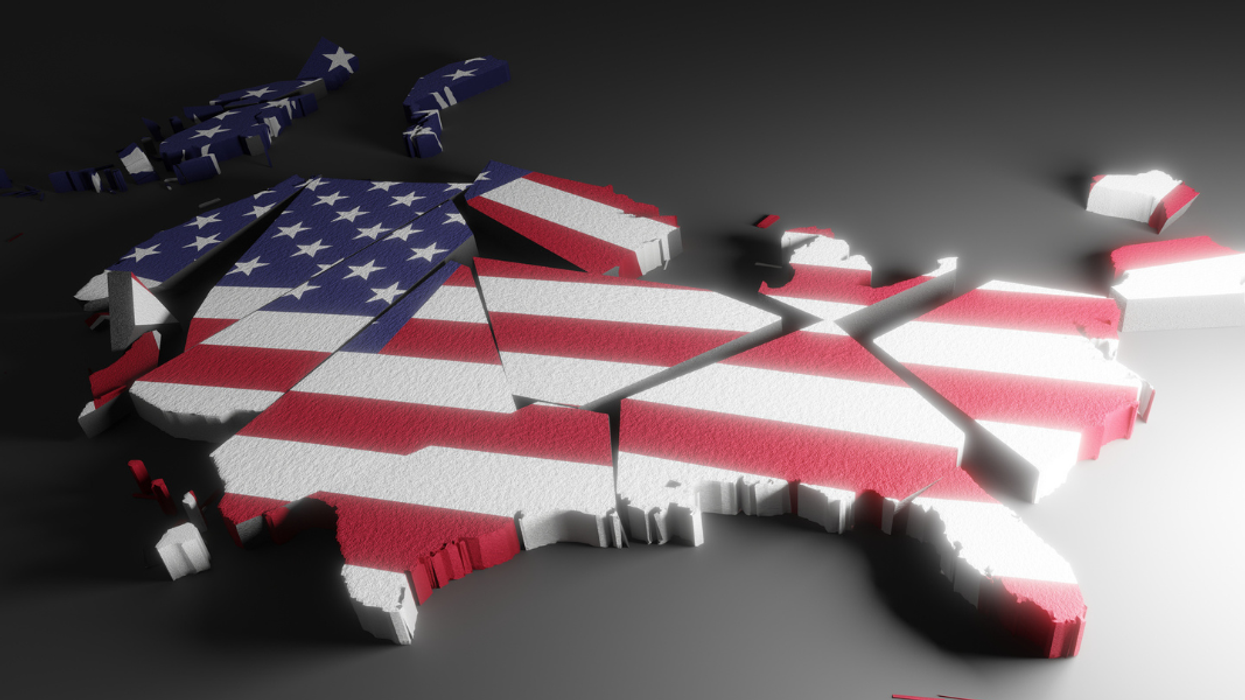Anderson edited "Leveraging: A Political, Economic and Societal Framework" (Springer, 2014), has taught at five universities and ran for the Democratic nomination for a Maryland congressional seat in 2016.
Americans after World War II felt a strong sense of national unity and moral superiority. We fought with our allies against German, Italian and Japanese enemies we believed were morally depraved, and we positioned ourselves on a moral pedestal. The Cold War led us to build up arms against our USSR allies, and this 45-year massive effort kept Democrats and Republicans in Washington positioned on the pedestal even as we engaged in a brutal ideological, economic, and social battle over the nature of our capitalist society.
There was always dissent in the country, notably the progressive young Americans who protested against the Vietnam War and supported politicians ranging from Eugene McCarthy to Robert Kennedy and Malcolm X. Still, the vast majority of Americans believed in the basic moral superiority of the United States and the moral depravity of the Soviet Union and its communist ideology.
Since the end of the Cold War we have become very fragmented as a nation with respect to the basic question of how we fit into the world. Certainly since 2016 when Donald Trump became president the country has developed a large segment of the population who see America as the leader in the world but from an America First perspective. This perspective shares the concept of America on a moral pedestal with our post World War Il and Cold War perspectives, but it broke away from the standpoint that saw the United States engaged in a common political and economic venture with our NATO allies in Europe and Japan, South Korea, India and other Asian allies.
Not all Republican politicians and citizens have embraced the America First ideology. Democrats in Washington and citizens who identify as Democrats, which is roughly about 30 percent of the country (which is a bit more than Americans who identify as Republicans), are themselves divided over how they view the country's place in the world. Bill Clinton and Barack Obama struggled to position us as an indispensable nation, a leader among world leaders. Yet it was never clear what precisely this meant.
What we must accept is that there is not going to be any concept of the country and its destiny that will be embraced by 80 or 90 percent of the country in the near future. We are plainly too fractured to achieve that sense of national unity and destiny. We need a concept of ourselves that 60 to 70 percent of the country can embrace. That is what America must search for in the years ahead.
A natural place to start is with the 40 percent of Americans who, according to Gallup, do not identify as either Democrats or Republicans. They identify as Independents. These Independents are quite a mixture of libertarians, Greens, moderates and creative thinkers who want synthesis and out of the box thinking. What unites them is their disappointment and even disgust with our politics in Washington and the rise of hostility and overall incivility in our culture at large.
This group of American adults, maybe 100 million Americans, can be a source of hope, love and commitment to one America. Leaders must listen to them, as they are not organized and have no clear leaders. These independents, though, can help pundits, the media and politicians with the very challenging task to craft a concept of America that will weave together important strands of Democratic and Republican doctrines without incorporating the one-sidedness and anger of the two parties today.
America can retain its distinctive place in the world, yet not because it is the land of liberty or the land of equal opportunity or the place of religious toleration. Our place on the world stage can no longer be reduced to a single master value.
Instead, it must revolve around our acceptance of the irreconcilable conflict between leading democratic values, notably between economic freedom and economic equality. Although Independents do not occupy the same place on the political spectrum, most do not sit on the polarized left and right sides of the spectrum. America's place in the world and its destiny should therefore come from this diverse group of dissenters. They can, moreover, draw their inspiration from the founders who made up only about a third of the colonists.
The Independents are our centrist identity more than the purists in either party. They also have an attitude of brotherhood and sisterhood which can bring us together. These Independents plus those Democrats and Republicans who are more moderate than purists can get us to 60 or even 70 percent of the country.




















Trump & Hegseth gave Mark Kelly a huge 2028 gift